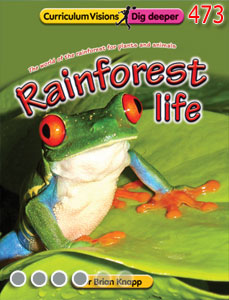Insect pollinated flowers produce nectar in special organs called nectaries. They are at the base of the petals inside the flower so the insect has to travel past the reproductive organs to reach it. As the insect searches for nectar it may pick up pollen from the stamens or deposit the pollen it is carrying on the stigma. The nectar provides the insect with a high energy drink which gives it the power for flight.
Bees collect nectar from flowers and make honey - a store of high energy food that is eaten by the young as they develop in the hive.
Some birds, for example the hummingbird, also collect nectar.
Bracken is unusual in that it is a non-flowering plant that produces nectar. It produces nectar from nectaries on its stems in the ground. The nectar attracts ants. They feed on the nectar and defend the plant to stop it being eaten by other animals.




